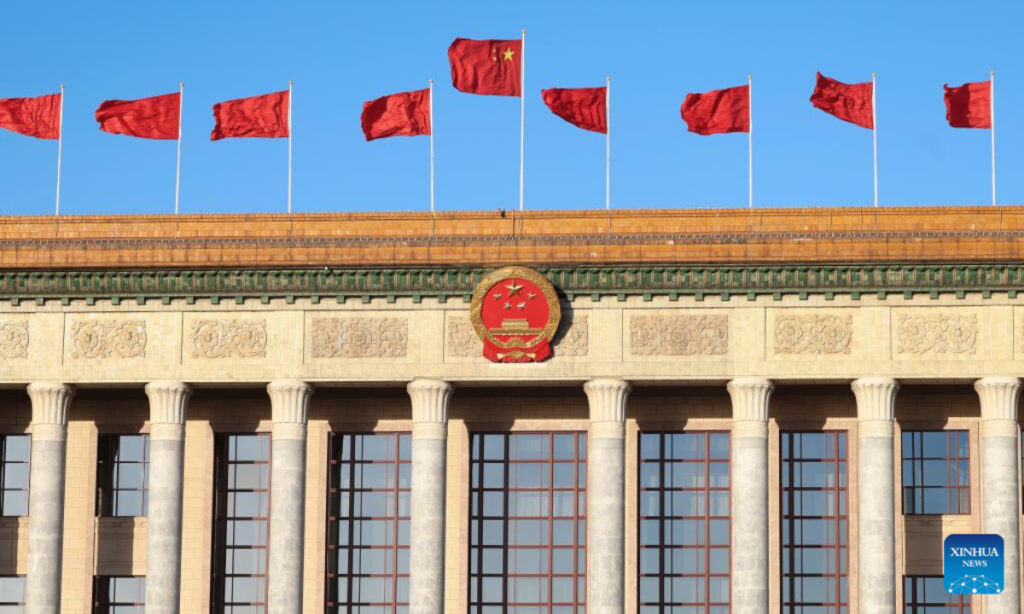Move in line with development requirements of modernization course
The 20th Communist Party of China (CPC) Central Committee kicked off its three-day second plenary session in Beijing on Sunday to review a draft plan for the reform of the Party and state institutions and deliberate lists of recommendation for key posts of state institutions and the top advisory body.
Xi Jinping, general secretary of the CPC Central Committee, presented a work report on behalf of the Political Bureau of the CPC Central Committee.
The plenum will review a draft plan on the reform of the Party and state institutions, as well as the proposed name lists of candidates for the leading positions of state institutions to be recommended by the Political Bureau of the CPC Central Committee to the first session of the 14th National People’s Congress, and candidates for the leading positions of the National Committee of the Chinese People’s Political Consultative Conference (CPPCC) to be recommended to the first session of the 14th National Committee of the CPPCC, the Xinhua News Agency reported.
The 14th NPC will open its first annual session on March 5. The first session of the 14th National Committee of the CPPCC will begin on March 4.
There have been major reforms and adjustments of state institutions since 2018. Five years on, further reforms and adjustments are necessary to meet the new demands of China’s development, analysts said.
Zhu Lijia, a professor of public management at the Chinese Academy of Governance, told the Global Times on Sunday that the reforms can help streamline the power-responsibility structures within and among state institutions, so as to meet the needs of China’s economic and social development in the new era.
The institutions should be adjusted to cope with new realities in social development, public security and social governance, Zhu said.
Analysts shared the consensus that as the 20th CPC National Congress in October 2022 charted clear China’s course of modernization and set clear the timetable, institutional reforms are required to ensure the country can march toward the goal smoothly.
For a modern socialist China in all respects, a modernized governance system and governance capabilities are required, which can be achieved through deepening the reform of state institutions, they explained.
China is gearing up for the new development era while facing complicated domestic and international situations. At the moment, timely reforms can push for more scientific Party leadership of the Party and state institutions, and optimize the institutional system, so they can work more efficiently en route to Chinese modernization, Zhang Shuhua, director of the institute of political sciences at the Chinese Academy of Social Sciences, told the Global Times.
(Global Times)




